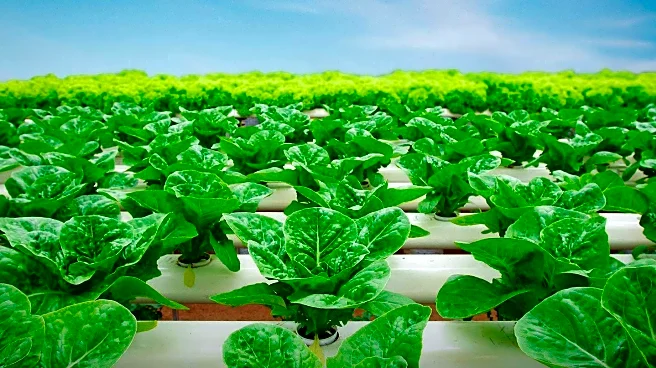What's Happening?
The Northern Guam Soil and Water Conservation District is organizing its second annual Agriculture Symposium from October 8-10 at the Guam Museum. The event aims to address the island's significant reliance on imported food, which constitutes about 90% of local consumption. The symposium, themed 'Rooted in Resilience: Growing Food, Farms and Community,' will bring together farmers, educators, and entrepreneurs to discuss strategies for enhancing local food production and sustainability. The event will feature expert panels, workshops, and networking opportunities, all free and open to the public. A key focus will be on inspiring the next generation of agricultural leaders and integrating agricultural industry with entrepreneurship.
Why It's Important?
This symposium is crucial for Guam as it seeks to reduce its dependency on imported food and enhance local food security. By fostering a robust agricultural sector, the island can improve its resilience against global supply chain disruptions and economic fluctuations. The event also emphasizes sustainable practices, which are vital for preserving Guam's natural resources, particularly its water supply. Engaging the community and future leaders in agriculture can lead to innovative solutions and long-term sustainability, benefiting the island's economy and environment.
What's Next?
The symposium is expected to draw significant participation, building on last year's attendance of about 150 people. Organizers aim to continue this as an annual event, providing ongoing support and resources for local farmers and entrepreneurs. The district plans to offer programs like perimeter fencing grants to protect agricultural lands, and will continue to focus on integrating national and regional agricultural knowledge into local practices. The event will also include an agriculture-focused raffle to encourage participation and support for local agriculture.
Beyond the Headlines
The symposium highlights the cultural importance of agriculture in Guam, emphasizing the need to preserve traditional practices while adopting modern sustainable techniques. Protecting water resources is a critical concern, as the island's aquifer supplies the majority of its water. The event underscores the importance of community involvement in environmental stewardship and the potential for agriculture to drive economic growth and cultural preservation.










